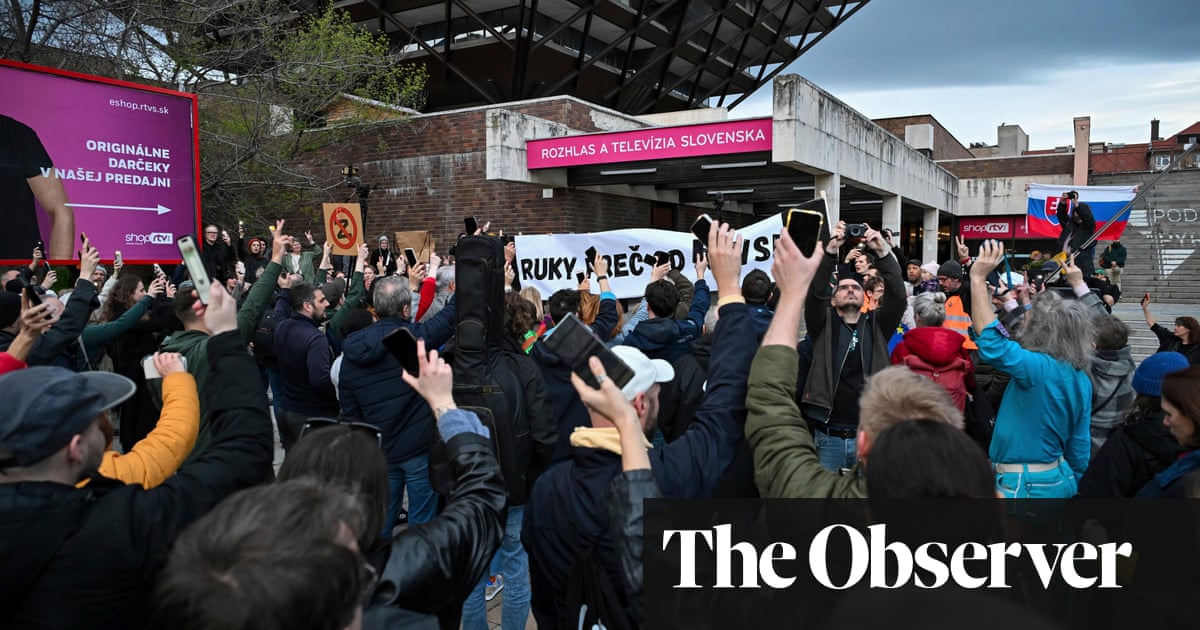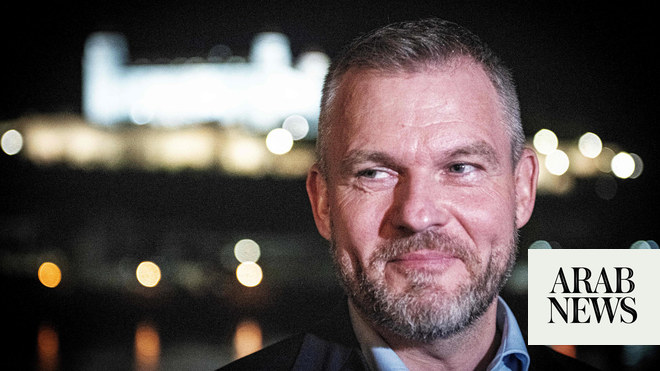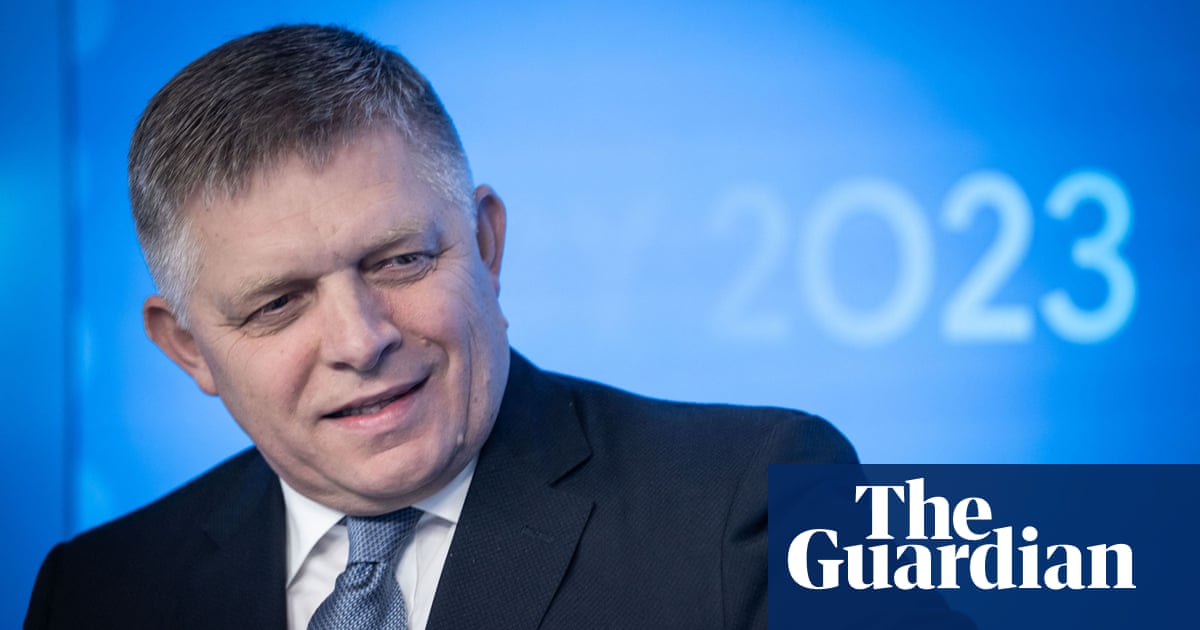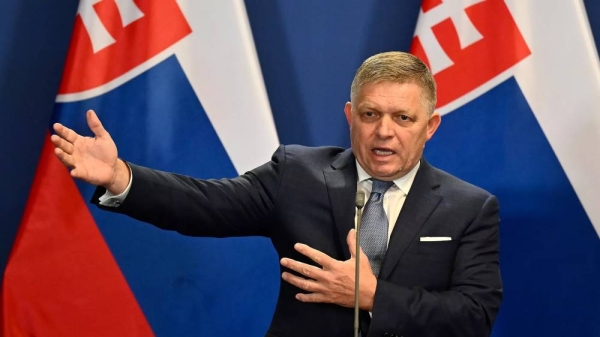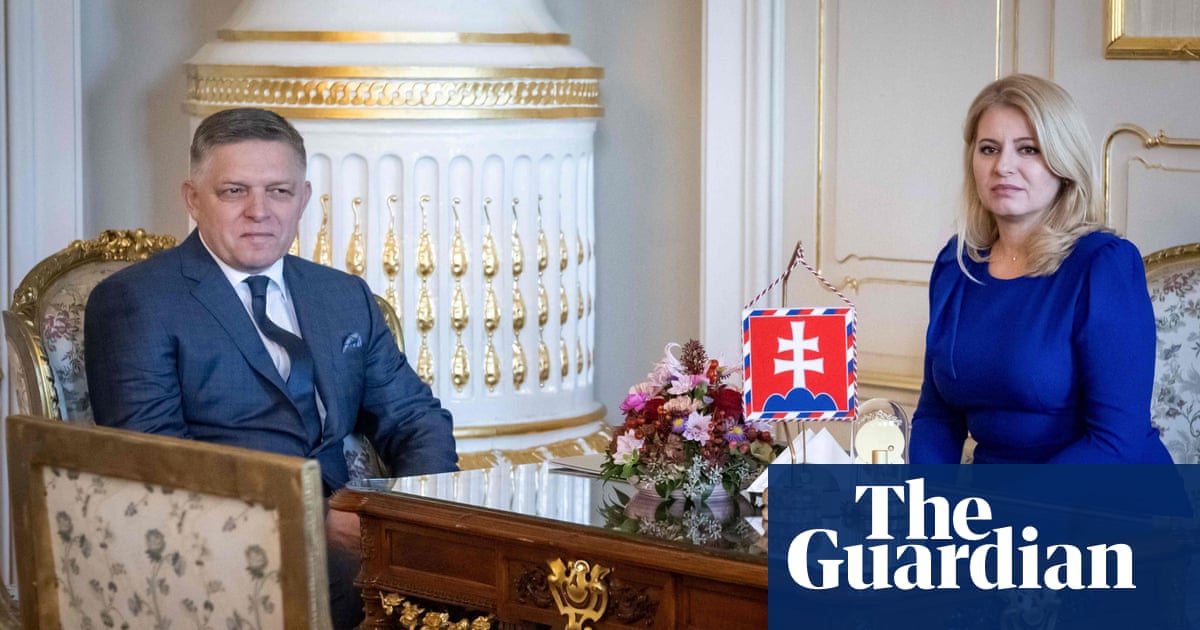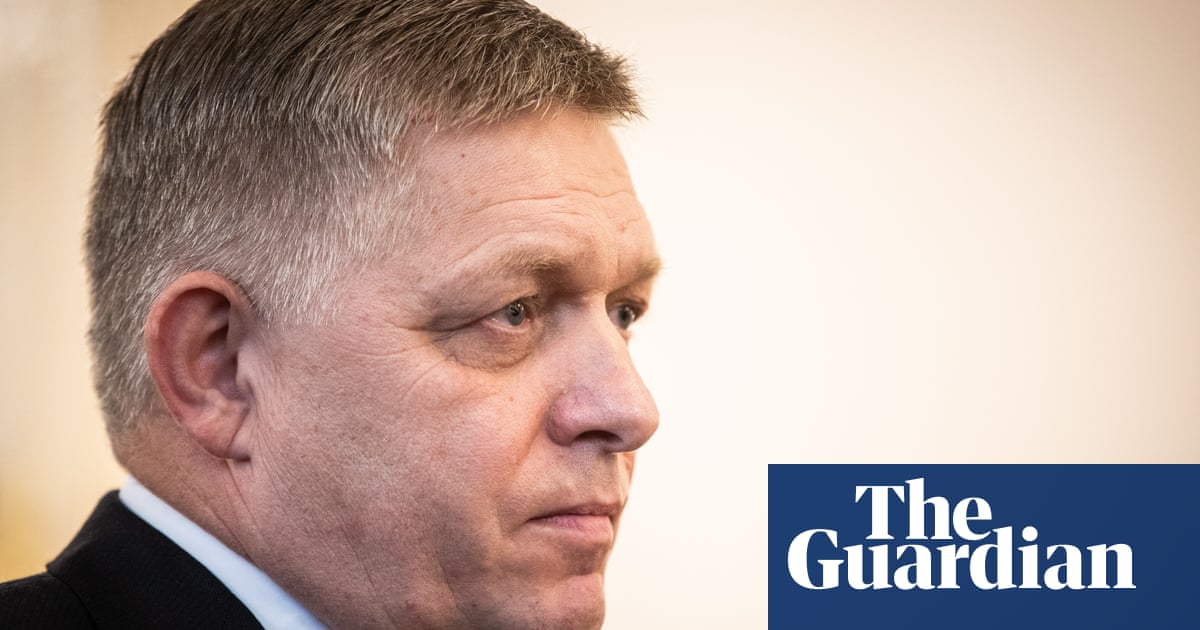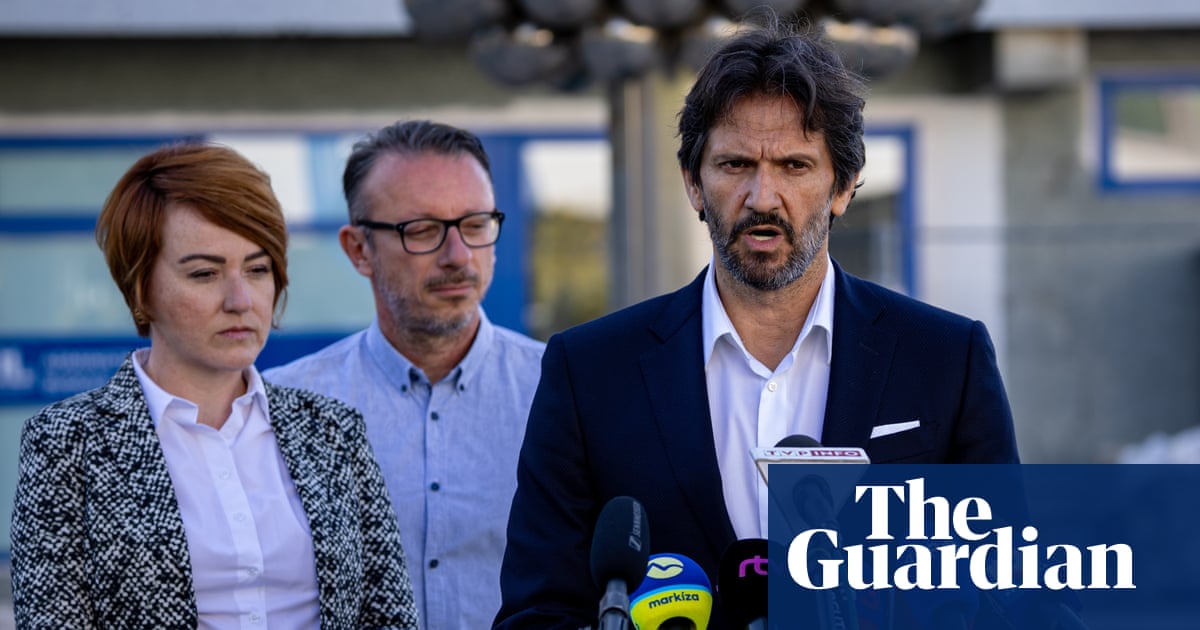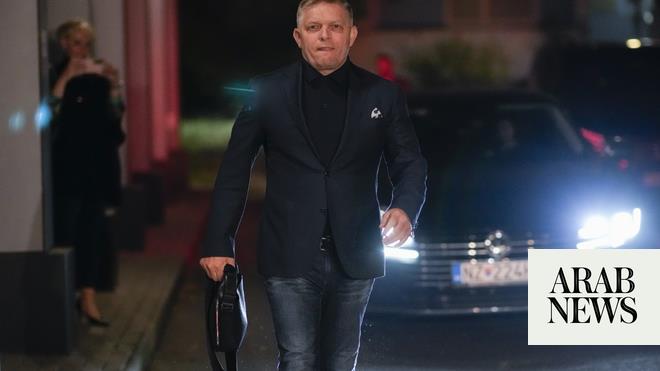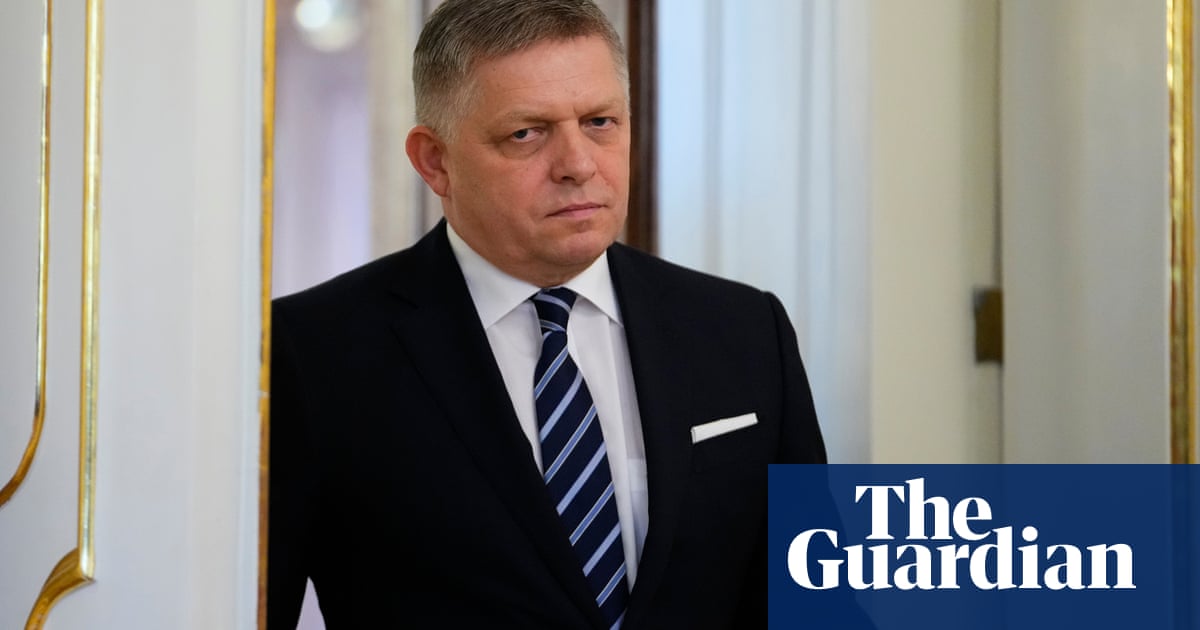
Robert Fico, the nationalist politician who has been sworn in as prime minister and head of a coalition government in Slovakia, is a familiar figure. The burly and brash political veteran has enjoyed three previous stints as prime minister and so is well known to voters and observers.
The 59-year-old is also typical of the new wave of nationalist-populist politicians who have emerged over the last decade, riding the wave of resentment generated among tens of millions of Europeans by the diverse disappointments of the third decade of the 21st century. His fall from power amid corruption allegations and after mass protests prompted by the 2018 killing of a young investigative journalist was supposed to be definitive.
Fico grew up in Topoľčany, a small town in Slovakia’s west, the son of a forklift truck driver and a shop worker. Soviet tanks had crushed the Czechoslovak reform movement when he was three years old and few expected any change to the iron grip of the Communist party on what was then Czechoslovakia during his early years.
He attended local primary and secondary schools, then signed up to study law at the respected Comenius University, 100km away in the capital, Bratislava. In 1987, a 23-year-old Fico joined the Communist party, a useful step for anyone who hoped for advancement within the system, and in 1988 married a fellow lawyer.
As a young man, Fico remained very much within the system, doing his military service as an investigator, earning a PhD for his study of capital punishment and then working in the legal branch of the Slovak Academy of Sciences. This was not the path of a radical, a political demagogue, or an angry or frustrated man determined to change his world for the better.
Then an era ended. In 1989, the Berlin Wall fell and the non-violent Velvet Revolution ended communist rule in Czechoslovakia. Slovakia won its independence in 1993, by which time a fragile social democracy had been established in place of totalitarian rule.
The new freewheeling capitalist era offered opportunities to business entrepreneurs and to political ones too. Fico was young, convincing and importantly untainted by any associated with the fallen communist regime. His new career as a politician – a childhood ambition – progressed rapidly.
First he joined the Party of the Democratic Left, then moved to found Smer – sociálna demokracia (Direction – Social Democracy, Smer-SD). The new organisation paid lip service to both democracy and socialism, though many observers quickly concluded that ideology came second to Fico’s own ambitions.
Seven years of opposition led to a victory in elections in 2006. This proved the political potency of promising to protect those left behind in a country where living standards for many were only slowly catching up to western Europe and where, in consequence, many were nostalgic for the communist-era past.
“Fico is a technician of power, by far the best in Slovakia. He does not have a counterpart at the moment,” said the sociologist Michal Vašečka from the Bratislava Policy Institute. “Fico is always following opinion polls, understands what is happening [in society].”
Out of power from 2010, Fico’s party won power again two years later after another centre-right coalition broke up. A tough stance against migrants brought re-election in 2016. But then, when the journalist Ján Kuciak, who was investigating high-level graft, and his fiancee, Martina Kušnírová, were murdered by a contract killer in 2018, Fico ran into trouble again. Huge protests forced him to resign. Smer lost power in a 2020 election to parties pledging to weed out corruption, and his party split.
Fico would not give up, however, preferring a brutal political battle to indulging his taste for bodybuilding or fast cars.
Riven by incessant factional disputes and personality clashes, the new government soon struggled. Dozens of senior officials, police officers, judges, prosecutors, politicians and business people linked to Smer were convicted of corruption and other crimes, and a chaotic response to the Covid pandemic angered voters.
Fico, now polling under 10%, saw a new opportunity.
“He became the most prominent political representative of a movement against face masks or vaccination,” said Grigorij Mesežnikov, a political analyst in Bratislava.
The Smer leader himself faced criminal charges, which he has always denied, over allegedly creating a criminal group and misuse of power, but Slovakia’s prosecutor-general threw out the indictment. This offered further motivation to win back power.
“He is borrowing from Trump and will do and say what is needed, taking from right and left. He’s been very skilful at positioning himself as anti-establishment. His main interest now is to dismantle the judicial effort … He is escaping by winning,” said Milan Nič, a senior research fellow at the German Council on Foreign Relations, shortly before last month’s poll.
To this end, Fico has embraced more extreme positions that include attacks on western allies, pledges to stop military support for Kyiv, criticism of Russian sanctions and threats to veto any future Nato invitation for Ukraine. He has also worked hard to exploit the division between older, more conservative provincial voters and those in the capital, Bratislava, with its more progressive culture, and wealthier and often more educated population.
One of Fico’s targets has been country’s liberal president, the former human rights lawyer and activist Zuzana Čaputová, whom he has called a “US puppet” and who sued him last month for spreading lies about her. Fico has also labelled various opponents and NGOs as following the instructions of the US financier George Soros. Another target has been Slovakia’s LGBT community.
Fico, who analysts see as being inspired by Hungary’s Viktor Orbán, has said he has Slovak interests at heart.
“We see Viktor Orbán as one of those European politicians who do not fear to openly defend the interests of Hungary and Hungarian people,” Fico told Reuters last month. “He puts them in the first place. And that should be the role of an elected politician, to look after the interests of his voters and his country.”
Fico, whose Smer won the national election at the beginning of October with 23% of the vote, will now get the chance to do just that.




